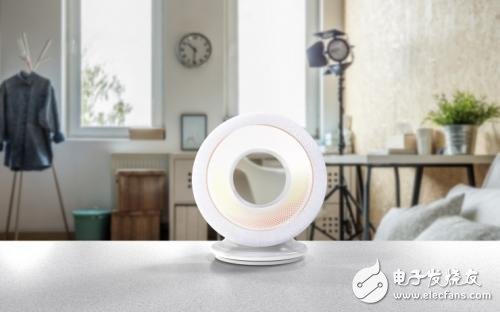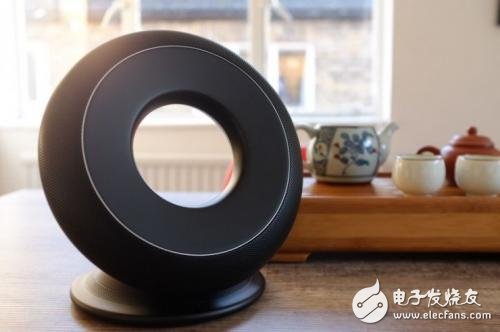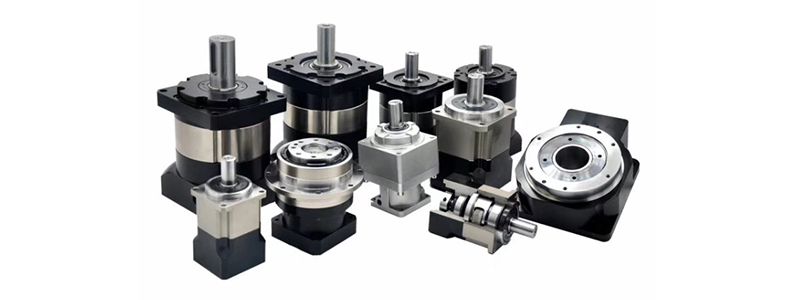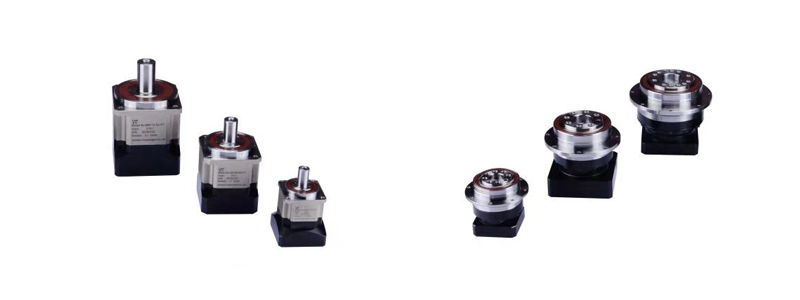The British AI (Artificial Intelligence) technology once attracted the acquisition of large companies such as Google, Microsoft, and Apple. Now it has a wonderful chemical reaction between it and China's huge market.
On October 10th, the Financial Times reported that China Merchants and the founder factory of the British startup incubator reached a multi-million pound cooperation agreement, and the two parties will cooperate to invest in startups in the field of artificial intelligence.
In August 2016, Emotech, a London-based robotics company, announced the completion of a $10 million Series A financing. The two institutions involved in this round of financing are Lightning Capital (Shanghai Yuting) and Alliance Capital (Shenzhen Yinghe), who are also from China.
Founded in 2014 by Zhuang Hongbin, Emotech has simulated the way the human brain works in brain neuroscience into robotic systems. Olly, the first robotic product to be developed, will be mass-produced in mid-2017. Why did Zhuang Hongbin choose to start a business in the UK and introduce Chinese investors? How does Ollie differentiate from other robots?


Zhuang Hongbin was the chairman of the product committee of Renren. He experienced the whole process of Renren.com from its initial establishment to the listing of the 2011 NYSE. In 2013, he came to UCL (University College London) in the UK and began to learn about human-computer interaction.
“We have spent nearly a decade making the largest social network in the country and changing the relationship between people. I hope that in the next ten years, I can change the relationship between people and technology. Things need to be more international, not limited to China," he told the 21st Century Business Herald.
In September 2014, Zhuang Hongbin founded Emotech, which won the second place in the UCL Student Entrepreneurship Competition, one of the largest student entrepreneurship competitions in Europe. Zhuang Hongbin said that the choice to start a business in the UK is mainly because the UK has accumulated a lot of academic research in AI. Universities such as Cambridge University and Imperial College of Science and Technology have nurtured many AI-related talents. UCL is the world's best brain neuroscience college. Many deep learning teams are based on the intersection of computer science and brain neuroscience, and design the underlying AI model.
UCL is also the alma mater of the founder of DeepMind, a British startup. DeepMind was acquired by Google in early 2014. The artificial intelligence program AlphaGo developed by the team was widely known for defeating Korean chess player Li Shishi in March this year.
“At the same time, the UK also has advantages in industrial design, animation design, intellectual property protection, etc. We have access to some designers in the UK and Northern Europe in London,†said Zhuang Hongbin.
Emotech has an international background, except that Zhuang Hongbin and a co-founder Chelsea are from China, and almost all other members come from different countries. It is understood that the company's scientists, designers and market personnel are mainly concentrated in London. Emotech programmers and scientists are also distributed in San Francisco, Shenzhen, and Armenia. They are behind the jet lag and do the same thing.
The formation of this entrepreneurial team is not easy. Some of them are Zhuang Hongbin's alumni at UCL, and some are full of coincidences. Zhuang Hongbin recalled that, for example, the company originally wanted to recruit an animated designer. He inspected many famous London animators who were interested in Emotech's project but let them give up in the field of animation design. The achievement, joining a little-known AI startup company is difficult.
Until one day, Zhuang Hongbin found a senior female animator in DreamWorks. She introduced her husband, David, who also designed in DreamWorks, to Zhuang Hongbin. David participated in the animation design of "Crazy Primitives" and "Galaxy Guards" at DreamWorks, and studied how to use animation to display emotions and expressions. If these accumulations are used in the design of robots, the robots can express their feelings as human beings as possible and interact with humans.
David is also a fanatic of robots, and he has almost all visible robots on the market in the UK. After work that day, David and Zhuang Hongbin met to talk late at night, the two sides have not even talked about salary, they are planning a future product design. Soon after David joined Emotech, he rejected Oculus's offer, and the VR company acquired by Facebook also had good prospects.
"Our team of speech recognition scientists Pawel, also a well-known expert in the industry, refused Microsoft's high-paying and stock opportunities to join us." Chelsea told 21st Century Business Herald that scientists joined a small team to be able to Quickly turn the results of the experiment into products and then roll them out to consumers. In large companies, this process is usually lengthy.
Grafting Chinese capital and industrial chain resourcesEmotech's software systems are maturing, and Orly will be mass-produced in mid-2017. Since the talents of AI are mainly in English, and the smart home market in Europe and the United States is more mature, Ollie will start in the United States in English. The robot targets 25 to 40 years old, a young white-collar worker interested in emerging technologies and smart homes.
"We don't want to be humanoid robots. We are not good at this market, and we also have a lot of players. But we have advantages in software. Only we are simulating the operation of the human brain in the brain neuroscience into the robot system. We There are a wealth of scientists in this area." Zhuang Hongbin said that the main intelligence and personalized robots in software intelligence is a very feasible direction for the company to enter the market early.
Chelsea said that Emotech's robots have different personalities just like people. It is influenced by the owner's personality and constantly defines and matches his personality to better communicate with the owner. This is the most different place for Emotech's robots.
“People often think that robots as high-tech products will mainly attract the attention of male consumers. But we found during the experiment that because Orly is good at emotional communication, it is also loved by many female consumers. This is in line with our previous expectations. Not so much, then we also asked scientists to do some design, so that the personality of the robot can cause more female consumers' goodwill," she added.
Zhuang Hongbin believes that the company regards emotion as an interactive way of upgrading, thinking about how to integrate emotional elements into the interaction between users and robots, so that users can be more enjoyable. Instead of using emotion as a functional thing, satisfy the user's needs for making friends.
Although Orly's debut in the United States, Emotech regards China as one of the most important markets in the future. The company also chose Chinese investors Shanghai Yuting and Shenzhen Yinghe in the A round of financing. Shanghai Yuting has invested in LeTV Sports and LeTV mobile phones, and Shenzhen Yinghe has invested in the disruptive American technology company Magic Leap.
“Emotech will put the production of robot hardware in Shenzhen, China. Chinese investors have a lot of upstream and downstream resources in China, which can help Emotech produce more perfect products.†Zhuang Hongbin said, “If you go to the big factory yourself, It is very difficult for senior staff to break through, and the introduction of investors is to add a WeChat."
He also said that many other robotic teams in foreign countries hope to finance the production of hardware through crowdfunding, but this often leads to the continuous delay of the project. Emotech has Chinese investors and supply chain providers, and there will be more guarantees in mass production. In addition, Dr. Szu, a member of the team responsible for robot production and supply, has participated in Apple's first-generation laptop and iPad projects, and he is well-versed in the production of hardware products.
Emotech has also attracted the attention of a large European industry fund because of its emergence in Europe, but Emotech did not accept their investment.
“Industrial funds are more interested in our software components than in helping us get to the back of the hardware production process, which may have limitations for our future development.†Chelsea said, there are also some large manufacturers trying to develop with Emotech. Cooperation. The company did not refuse to cooperate, but did not want to do this before the first round of product production and sales, and get more consumer feedback data.
For the company's future development, Zhuang Hongbin said that Emotech has already had the ability to mass-produce products, and will first cover the products in all English-speaking countries. The company's next step will be to introduce capital and talent with a background in the United States, which will greatly help Emotech in the next stage of how to promote products to the international market.
High Precision Planetary Reducer
High Precision Planetary Reducer MD series Speed Reducer Epicyclic Reduce planetary gearbox high precision planetary gearbox, high accuracy, good rigidity, large load capacity, high efficiency, long life, low noise, small size, beautiful appearance, convenient installation, accurate positioning, etc., suitable for AC servo motors , DC servo motor,stepping motor reduction drive.


High Precision Planetary Reducer,Planetary Reducer,Planetary Gear Reducer,Planetary Gear Reduction
Ningbo Biote Mechanical Electrical Co.,Ltd , https://www.biotept.com